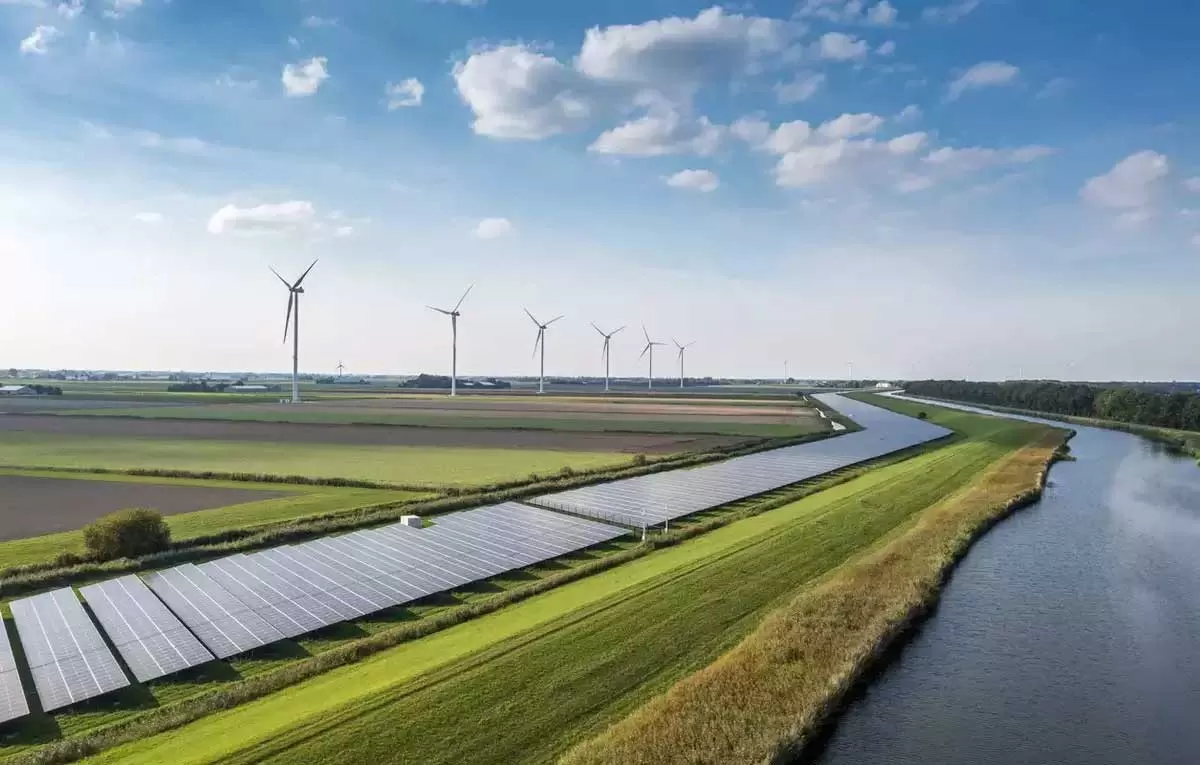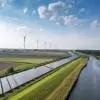Global carbon dioxide emissions are projected to reach a staggering 42.88 billion tonne by 2030, according to the US Energy Information Administration's International Energy Outlook. Amid this, there is a pressing need for sustainable solutions. Fitsol, a SaaS platform launched in 2022, is helping logistics companies to tackle carbon emissions, which constitute the majority of their carbon footprint. The firm leverages artificial intelligence (AI) to monitor and report carbon emissions in real time, empowering companies to take steps toward sustainability and carbon neutrality. Anand Pathak, Co-Founder and CEO, Fitsol, tells NEHA YADAV about the journey, recent seed funding rounds and future ESG chatbot plans.What was the inspiration behind Fitsol?The inspiration came from a deep-rooted desire to create a meaningful impact on the world. Having held leadership roles both nationally and internationally and successfully scaling businesses, I wanted to leverage my experience to address pressing global challenges. The birth of my daughter, combined with the growing pollution crisis, particularly in Delhi, solidified my resolve to focus on decarbonisation. Fitsol was founded in 2022 as a culmination of this vision, with the mission to drive sustainability in supply chains, alongside like-minded cofounders who share this passion.We often see a lack of focus in the market for Scope 3 emissions solutions. What are some of the solutions you are providing?Scope 3 emissions remain one of the most complex areas to address and we are designing or products and services to tackle these challenges. Our approach includes innovations in carbon accounting, such as our Partner Onboarding feature, which is a first-of-its-kind tool to onboard suppliers and streamline Scope 3 data collection, aiding in accounting and reporting for large manufacturers. Additionally, we are building a Sustainable Marketplace, an ecosystem of verified vendors to meet diverse sustainability requirements. Through these solutions, we help businesses take actionable steps toward decarbonisation and achieve their net-zero goals. For example, we offer Green Procurement Support, helping industries source sustainable materials like green steel for the automotive sector or regenerative cotton for textiles.How did funding come about for the venture?After developing a compelling value proposition and demonstrating our capabilities through pilot projects with key clients, we engaged with investors who shared our vision. GetVantage and Transition VC recognised the potential of our approach and became our partner in advancing our decarbonisation mission.What is your revenue model and what was the revenue in the last financial year?Our revenue model is designed to be flexible and client-focused, encompassing several avenues. First, we offer a Subscription Model, providing access to our Kyoto platform for real-time emissions management and insights. We also provide Managed Services, where clients pay per use for sustainability solutions like green transportation, green packaging and green procurement, on a unit or part basis. Additionally, our Opex-Driven Solutions model eliminates upfront capital expenditures, making it easier for clients to adopt our solutions. This combination ensures our clients derive tangible value while aligning with their financial and sustainability goals. We have a revenue of Rs 170 million in FY24 and are targeting Rs 600 million by next year.Fitsol has recently raised a significant $ 1 million in its seed round. How did the partnership with Transition VC come about, and how will this funding help?The partnership with Transition VC emerged from a shared commitment to decarbonisation. With their expertise in clean energy, Transition VC was a natural fit for Fitsol. This funding will play a crucial role in scaling our operations, expanding our marketplace, enhancing our AI capabilities, and building our team to meet the increasing demand for decarbonisation solutions.How are you leveraging AI for your business?AI is central to Fitsol’s operations. Our Kyoto platform uses real-time data analysis to streamline Scope 1-3 emissions reporting by automating data collection and processing, which allows us to generate readymade reports from publicly available information. Additionally, AI enables us to provide actionable recommendations for emissions reduction, including optimised routing, vehicle utilisation and packaging design, all of which contribute to more sustainable practices for our clients.It was reported that you are working on a chatbot for ESG-related queries. What is the development in this regard?Yes, we are developing an AI-powered chatbot to handle ESG-related queries for businesses. The Sustain Chatbot, which is sector-agnostic, will act as an assistant for those looking to move towards sustainability. It will provide real-time guidance on ESG compliance and reporting, offer tailored recommendations for carbon management and sustainable practices, and even benchmark companies against industry leaders and competitors. Currently, the chatbot is in its pilot phase and we plan to roll out the full version in the coming quarters as we continue to refine the model.Can you share a success story where Fitsol helped a client achieve measurable results?One of our standout success stories involved optimising logistics and packaging for a manufacturing client. Using our Kyoto platform, we identified inefficiencies in packaging design, which led to underutilised vehicle capacity. We suggested compact, sustainable packaging designs and optimised routing to reduce emissions. Additionally, we replaced one-way packaging with returnable, eco-friendly solutions. The results included a 20 per cent reduction in supply chain costs, a 15 per cent drop in carbon emissions, and enhanced operational efficiency. What are the biggest challenges companies face when trying to measure, manage and reduce emissions?The main challenges include data collection, consolidating data from a wide range of internal systems and external partners. There’s also the vendor ecosystem, as many companies struggle to find partners with the necessary expertise and capacity to meet sustainability goals. Last, organisational alignment can be a hurdle. Midlevel management often focuses on short-term KPIs, which makes it difficult to drive long-term sustainability initiatives. The sustainability and carbon management space is growing rapidly. What would be your differentiator?Fitsol’s differentiator lies in our integrated approach. We combine AI-driven insights, offering real-time analysis and actionable recommendations, with a comprehensive decarbonisation partnership. We take ownership of the entire journey, from carbon accounting and compliance-based reporting to implementing sustainable solutions that achieve measurable reductions in carbon footprints. Additionally, our scalable marketplace provides businesses with access to sustainable products and services. What are your long-term plans for Fitsol?Our vision is to become the go-to platform for decarbonisation and sustainability solutions. Over the next five years, we aim to expand our marketplace to encompass all major industries and sustainability needs. We also plan to continue investing in AI and technology to enhance our platform’s capabilities. Ultimately, we aim to achieve a net-zero future by reducing and offsetting 1 billion tonne of carbon emissions through measurable decarbonisation strategies.Quotes“Our Kyoto platform uses real-time data analysis to streamline Scope 1-3 emissions reporting by data collection automation.”“We are developing an AI-powered chatbot to handle ESG-related queries for businesses.”


















